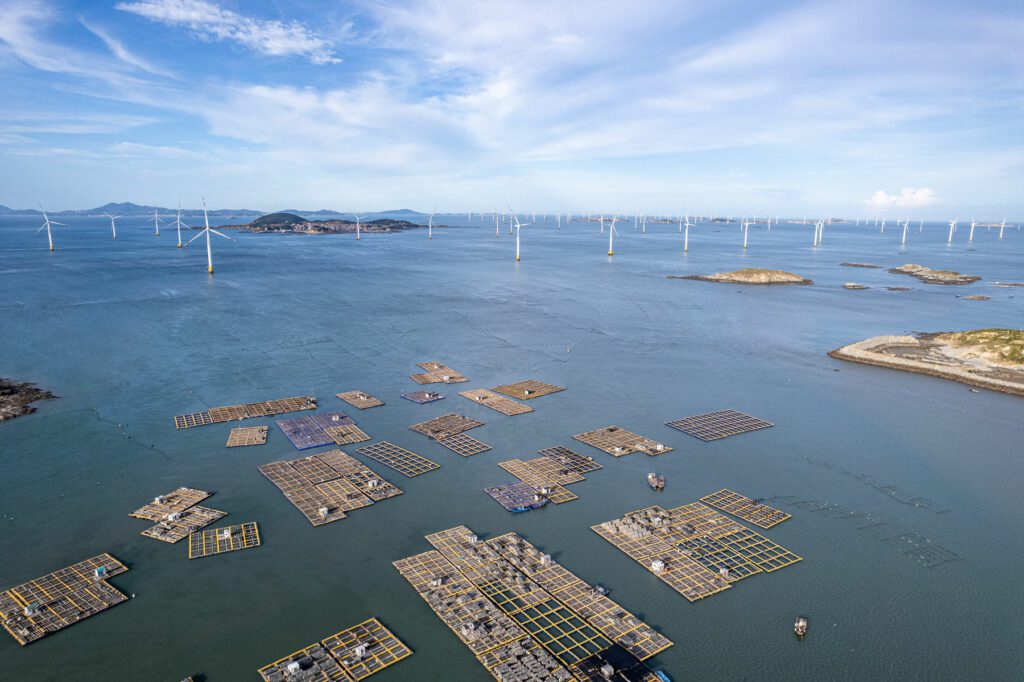Authors
Seaweed, a marine alga typically found in coastal areas, forms part of the rich biodiversity in the Earth’s waters. The plant-like organism is well known to have a number of environmental, ecological and economic benefits for the planet.
In many countries, seaweed farming practices are already commonplace. Given the known potential benefits, seaweed farming has also become increasingly popular in the UK and we have been instructed by a variety of organisations operating in this fascinating and fast-growth sector.
Global environmental charity, WWF, is one of the key organisations actively supporting seaweed farmers in the UK and undertaking vital research in this area, including research into the use of seaweed as livestock feed and a biostimulant. Mollie Gupta, Seaweed Solutions Project Manager at WWF, provides an exclusive insight into the seaweed industry and the work she is involved in below.
What is your role at the WWF?
I am the Seaweed Solutions Project Manager, which means I coordinate with all partners to ensure delivery of our wider strategy and programme of work. This work seeks to support seaweed farms to deliver environmental benefits in the UK, both from the point of view of seaweed farms having positive impact in the ocean and from the way that seaweed products can be used to support wider food system transformation.
What does the global and UK seaweed farming industry currently look like?
Seaweed aquaculture is already prevalent in many places around the world. The main producer regions include China, Japan, South Korea and Indonesia. Seaweed is often integrated into the cultures of some of these nations and seen as a delicious food ingredient.
In contrast in the UK, it is little known that before the industrial revolution, we’ve actually used seaweed for years in farming, pharmaceuticals and textiles. Most of this seaweed came from wild harvesting. In recent years there’s been interest in seaweed farming and we’ve seen the number of farms grow significantly in the last 10 years; an exciting trend that we hope to see continue.
Why is seaweed farming considered “regenerative”?
Growing seaweed does not require any pesticide, fertiliser, freshwater, or feed. This makes it drastically different to many other forms of food and biomass production, which usually require significant input.
In addition, seaweed grows quickly, is diverse in nutrients and uses, and can be combined with other forms of aquaculture such as shellfish cultivation. Seaweed farms are able to reduce local acidification problems, help with eutrophication, and can support biodiversity by turning an empty water column into a 3D forest. For these reasons we consider it to be regenerative for the environment. As well as helping to regenerate the ocean, seaweed farms can be supportive to local communities by offering jobs, supporting local tourism, and providing connection to the coast.
Why is the WWF particularly interested in seaweed farming?
The WWF is particularly interested in regenerative seaweed farming’s ability to bioremediate excess nutrients – such as run off from agriculture and pollution from sewage. Such seaweed could then, once harvested, be used as biostimulant and returned to field to help support crops to grow, reducing the need for synthetic fertilisers.
This is just one example of how seaweed in the UK could support circularity in our food system and reduction in nutrient inputs, especially as we know nitrogen is a problem in our freshwater systems.
There are other innovative uses of seaweed which we are interested in, including seaweed as a possible feed protein in future. We are working with Oceanium to see if it is possible to extract high quality protein from UK grown seaweed species, which matches other feed proteins like soy and could therefore one day help to displace these. This is an example of how our overseas land footprint and carbon footprint could be reduced by seaweed innovation in years to come.
We think seaweed products could help to displace carbon intensive products such as fertiliser and feed protein, and therefore lead to overall reductions in the GHG emissions from our food system.
However, we need seaweed farms to reach a degree of appropriate scale to be able to support these ambitions, and hence our programme is looking to support UK seaweed farming.
What advice would you give to someone looking to enter the seaweed farming industry today?
This is an exciting sector with a future full of innovation and discovery. We would really encourage those interested to join the sector to closely consider the skillset they can offer, and place this towards an area in need of support.
That could be anything from hands on skills on sea farms, to marketing and communications support, to research and evidence building.
To find out more about the WWF, visit www.wwf.org.uk
If you would like to discuss any of the issues raised in this article, please contact Chloe Vernon-Shore or Seema Nanua.


